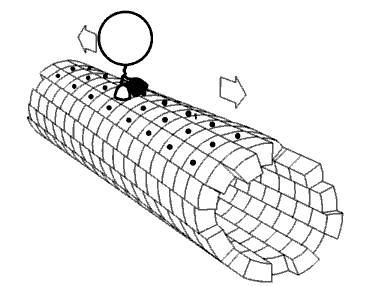
Photo from academic.microsoft.com
Amyotrophic lateral sclerosis (ALS) is a neurodegenerative disease caused by the deterioration of motor neurons that abates essential biological functions and exhibits survival times of 3 - 5 years after… Click to show full abstract
Amyotrophic lateral sclerosis (ALS) is a neurodegenerative disease caused by the deterioration of motor neurons that abates essential biological functions and exhibits survival times of 3 - 5 years after diagnosis. One driver of this disease derives from inherited mutations to the protein superoxide dismutase 1 (SOD1), which hinder proper folding and result in the accumulation of toxic aggregates. We identified cyclic peptides that target precise epitopes on SOD1 through an emerging screening platform that furnishes high-affinity binders against regions of a protein independent of secondary or tertiary structure. Binding these epitopes both stabilizes the native state and accelerates folding. In this context, these small peptides function as molecular chaperones and mitigate the impact of deleterious mutations to SOD1. They also display the traditional benefits of small molecules, such as straightforward chemical modifications and long-term stability. Overall, this method provides a route to rationally perturb the energy landscape of any protein through noncovalent binding, making it useful in fundamental studies of protein folding as well as designing therapeutics for misfolding diseases.
Journal Title: Biophysical Journal
Year Published: 2017
Link to full text (if available)
Share on Social Media: Sign Up to like & get
recommendations!